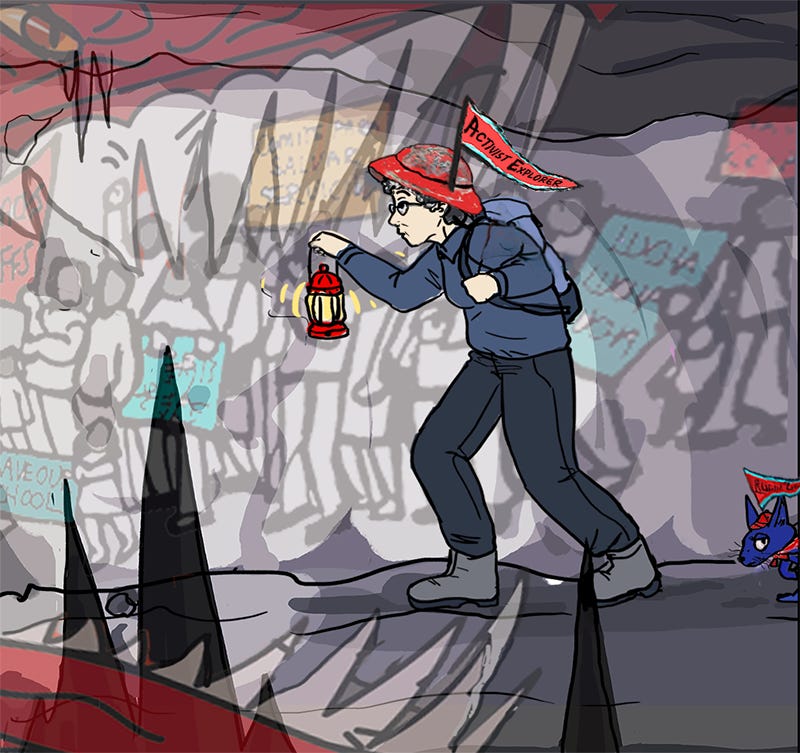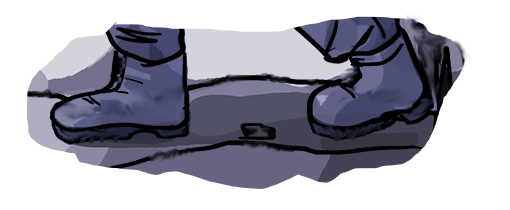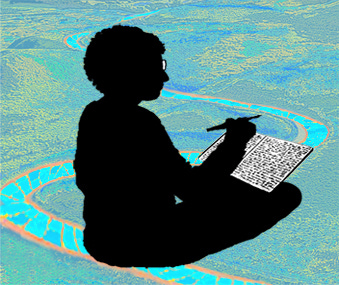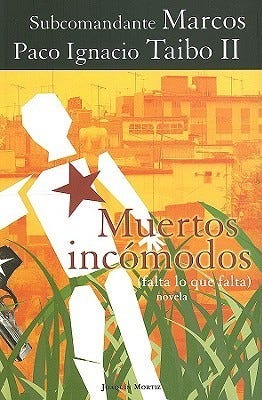Welcome to Activist Explorer, by Juliana Barnet, Volume 2
In this issue: * Activist Explorer Reboot * Fiction Featuring Activists * Rainwood House Movement Mystery Series * Activist Everyday Life * Stove Day * Footnotes * and more
* Activist Explorer Reboot *
In 2022, Activist Explorer made a first foray into the terrain of activist culture, exploring the interconnections of activism1 and fiction.2 (Click here to access the footnotes.) Then life—fiction and reality—intervened. Now I’m rebooting and getting back on the road.
Check out About for more details of this next expedition.
We’ll be venturing into the wilds of book publication and promotion with my Rainwood House ‘movement mystery’ series, set in a lightly haunted historic house in the fictional town of Rainwood, Maryland, just outside Washington, DC.
My goal with this series is to tell an engaging story, lighthearted but serious, with genuine, relatable activists at its center. I plan to enjoy the journey, but having your company will make it much more fun. We can share the views (some lovely, some likely less so), expected and unexpected landmarks, and inevitable bumps and detours.
The Rainwood House series is part of my larger project on Activist Culture. In the participant-observer tradition,3 I’ll be writing and reflecting on the challenges of doing a social justice arts project, while doing it.
* Fiction Featuring Activists *
We’ll explore the rocky terrain of activist representation in fiction, spotlighting novels, movies, TV shows, and other works of fiction portraying characters from the wildly diverse global gaggle of boat-rockers and neck-sticker-outers struggling for justice, peace, and planetary survival. Look for reviews and discussion here in this newsletter. Add your comments and recommendations!
Injustice is a common theme in fiction, as are rebellions and uprisings. But genuine portrayals of how social transformation actually happens, and what it’s like to organize with others to rectify injustice are rare indeed (at least in the English-speaking world.) This Activist Explorer article speculates on why. We’ll delve further into the connections between the power of fiction and people power in upcoming issues.
* May Movement Mysteries… *
Last May, in honor of International Workers’ Day I reviewed Standing Up, Tales of Struggle, about a couple devoted to worker organizing, and also The Factory Witches of Lowell, remembering that Beltane, Paganism and witches have ancient roots in rebellion, counter-culture, and preserving traditional healing knowledge.
This May, in honor of Cinco de Mayo, the May 5, 1862 victory of the largely indigenous Mexican forces over the invading French army in Puebla, Mexico, I focus on a novel set during a more recent example of Mexican Indigenous people rising up, that is, the Zapatistas of Chiapas, Mexico. The novel Muertos Incómodos (The Uncomfortable Dead) is an entertaining and edifying mystery by Subcomandante Marcos of the Ejercito Zapatista de Liberación Nacional and well-known Mexican detective novelist Paco Ignacio Taibo II.
First published in 2005, The Uncomfortable Dead takes place in the liberated Zapatista territory within Chiapas, Mexico. Muertos Incómodos is a lively mystery about chasing international criminals and about abuse of power in Mexico. It is unique in being a novel written as a “duet” between a social movement leader and a novelist.
The setting is integral to the story; through the characters and the plot the authors show how the Zapatistas live and think as they grapple with creating a new society in the bowels of the old.
Spotlighting this novel lets us notice that this movement of Mayan people is alive and well nearly 20 years after the novel’s original publication and nearly 30 years after the movement burst on the scene on January 1st, 1994. We also get the chance to recall the literary bent of its former leader Subcomandante Marcos, who has written other fiction, poetry and nonfiction.)
The Zapatistas continue living according to their principles and defending their participatory democracy, in the face of continuing repression and many challenges. For further reading on this remarkable struggle, which continues to inspire and to spark the imagination, check out some of the books on this list, and this article.
* Activist Everyday Life *
What’s it like for activists to live our lives in the belly of the beast we’re working to transform?
We have the usual ups and down of ordinary folks, of course, because we’re ordinary folks, too. However, we also run up against specific conflicts and contradictions, as well as unique joys and triumphs, because we challenge the beast every day, struggling to get it to improve its day-to-day behavior, as well as force it to morph into something completely different guaranteeing a good life for all.
The beast does not appreciate our efforts and will stop at nothing to prevent them.
We’ll be looking into what’s unique about our daily, experience, our emotional landscape, culture, language, and other interesting stuff. Including activist anniversaries and celebrations, some of which are worldwide, like International Workers Day, or regional, like Cinco de Mayo. Others are local, organizational, or even familial, like…
* Stove Day *
This month we got an induction stove, which cooks with electromagnetism. It’s our latest move to make our home as climate friendly as possible. Other moves include eliminating ‘natural’ gas (which is only natural as long as it stays in the ground), and joining a solar coop for our electricity.
We’re among the many folks in our neighborhood and across the country who, alarmed by the climate crisis, are adopting numerous measures to decrease our carbon footprint and move to renewable energy. For instance, by creating wildlife habitats in our yards.
Is this activism? If we share our endeavors to educate others and make it easier for them to take action, yes. Especially if we get together to discuss larger implications and see how our individual efforts connect to the globalocal struggle for planetary survival.
But while individual efforts are key, ultimately it is collective power and systemic change that we need. “Individual” and “collective” are not opposites in activist culture, but a complex duality: all collective efforts are comprised of participating individuals, and understanding this duality is one thing that can help us organize more effectively for planetary survival.
Speaking of complexity: electrification, individual and collective, is far from the entire solution to the climate crisis. No one thing can tackle this emergency. It’s gonna take us all.4
* Footnotes (definitions, details, tangents) *
I use “Activism,” short for “social justice activism” to refer to any and all purposeful activity, usually collective and in the public sphere—local, global and in-between—aimed at furthering justice, peace, equality, universal rights, mutual solidarity, and planetary survival.
Fiction: a work arising from the creator’s imagination, consisting of a story, or several interwoven stories. Generally, fiction stories begin with a problem, question, or quest that the characters must address. Consciously or unconsciously, readers expect fiction to have certain structures and for characters to undergo a meaningful transformation. Authors aim to create connections between readers and characters such that we feel it’s worthwhile to follow them to the end of the story, curious to see how they face obstacles and conflicts the author throws at them as they pursue their goal. Intentionally or not, all authors convey certain passions and beliefs through their stories, and all write from a particular worldview.
“Fiction” is also the craft of developing and conveying stories with skill.
As anthropologist, I learned to be a participant-observer, that is, to become immersed in the culture I am studying, so that I am very close to people’s experience. I should say that this methodology is not automatically beneficial to the people or group the anthropologist is participating with and observing. No matter how immersed, if the anthropologist is originally of a different culture, particularly one bent on colonizing the culture under study, the knowledge they gain may be used for domination.
I did my studies in Mexico. We learned “anti-colonial anthropology,” namely, generating knowledge for the benefit of and at the behest of the people “being studied,” rather than the colonizers. As someone immersed in activist culture for its own sake, my reflections arise from the reality and needs of my people. This does not guarantee anyone else sees things as I do, nor does it preclude my falling into colonizing and other oppressive patterns. Have to be vigilant about that!! But being a participant observer enables me to be present in my activist culture, and at the same time a step back to reflect on it.
Gonna Take Us All, by Jon Fromer - Rest in Peace and Power.










Welcome back Juliana!
Great to have this newsletter back! Look forward to following more activist adventures.